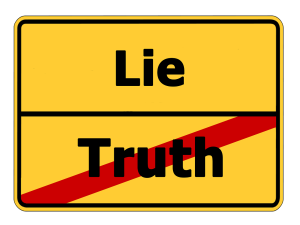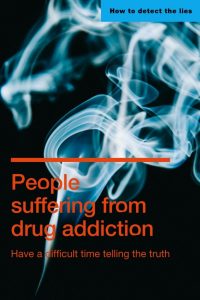Alcoholics, Drug Addicts and the Truth
If you have ever spent time with someone with a drug addiction problem then you know it’s hard to get a straight answer. Don’t blame yourself. Their stories are always so convincing.
The Cycle of Lies
You begin to really hate the person and hate yourself because you keep “falling for” for their non-truthful stories every time. When people addicted to drugs or alcohol need their fix, they are more convincing than an academy award winner. It’s because they are motivated by painful withdrawal symptoms. They need to get drunk or high. It comes naturally for a substance abuser to create an elaborate story or scheme. Even a highly trained professional, can get fooled.
When I was drunk or high, there was an easy way to tell if I was telling the truth … any type of words was coming out of my mouth. Made up stories were substituted, even when the truth sounded better. It’s not a great way to live.

I could never pass, what I call the “duck test”.
You may not be familiar with this if you live a relatively honest life. It was when I was walking around town, and heard my name called. Instead of elegantly turning around, I would jump under a bush.
Why would I do that? Simple, because I had told so different lies to so many people, that I couldn’t keep them straight. I was also convinced that there was no upside talking to someone, unprepared. Surely I owed the person money or an apology. It feels terrible to live that way.
I have been sober a long time now. I no longer have to worry about my name called. If I am walking down the street and someone yells “Victoria” I can gracefully turn around to see who it is.
It also feels good to be able to answer my phone, answer my door, open my mail and yes even look at bank statements. Being sober has a lot of perks.
Conversations with the drug addicts in your life
So, if you are talking to drunk alcoholics or a “high” drug addicts, they are most likely not telling you the full story. Don’t get me wrong, lots of people lie and for all sorts of reasons. In fact, 31% of people admit to lying on their resumes, 32% say they “stretched the truth” when giving their doctors personal information and 60% of people lie at least once during a 10-minute conversation (people lie more often over the phone than in any other form).

So, How do you detect a liar:
1. A liar will often use your words when answering a question.
– Did you use any drugs today?
– No, I did not use any drugs today.
2. A liar will often not use contractions
– Have you been drinking?
– No, I have not been drinking.
3. A liar will often make indirect statements and side-step a straight answer.
– Did you take my bottle of prescription painkillers?
– Does it look like I took your painkillers? Gee, if I was going to take someone’s painkillers, don’t you think I would have left already. (sometimes the person will actually help you look for the missing item).
4. A liar will often say way more than is necessary, telling a very elaborate story to sound more convincing.
– I had some emergency cash in that drawer over there, did you take it to go out drinking last night?
– No, I used my own money last night. I got it from the ATM on Gibson Ave. Did you know they charge a $2 service fee? It’s really a rip-off. I think I might even have the receipt. Let me go look for it.
5. A liar will often mumble or stammer
– Have you stopped using drugs?
– Well ….. garbled words follow …..
Drugs Addicts and Truth – Body Language “Tells”
- One classic liar move is touching the face, mouth or throat. Also, touching or rubbing the nose (sometimes the ear) can be an indication of deception.
- A liar will also avoid eye contact.
- A person not telling the truth will often stand stiffly, with a little arm or hand movements. This is done unconsciously to try to make their body occupy less space.
- Look for weird patterns regarding emotion. Indicators like showing too much emotion, or showing emotion for too long of a time. Also, there might be a gap between a person showing emotion verbally and physically. This is common to see when someone receives a present they do not like. First, they say “This is great – I love it” and they smile afterward. When the person smiles at the same time as saying the words, it tends to be more truthful of a statement.
- When the person is smiling, look carefully to see if their whole face shows movement. A fake smile is usually limited to the mouth area. A natural smile will use other muscle groups like the eyes and forehead.

Master the techniques to spot the liar
- When dealing with alcoholics or drug addicts, get out of denial because almost everything that is said will be a lie (from my own personal experience).
- Watch body language
- Listen carefully to how they say things and what they say.
- Understand eye movements (If the person looks up and to the right, they are typically trying to visually remember something – like if you pose the question what was your first pet’s name.
- Study other subtle eye movements.
- Be on the lookout for irregular emotional patterns.
If an alcoholic or addict is lying to you, it doesn’t necessarily mean they are a bad person. They are probably just very sick. Don’t enable this person. Get them the help they need. There are also people who suffer from a mental illness that makes them lie. You might have heard the terms pathological and compulsive lying. These conditions can be treated too!
SaveSave
SaveSave
SaveSave
SaveSave
SaveSave
SaveSave
SaveSave
SaveSave
SaveSave
